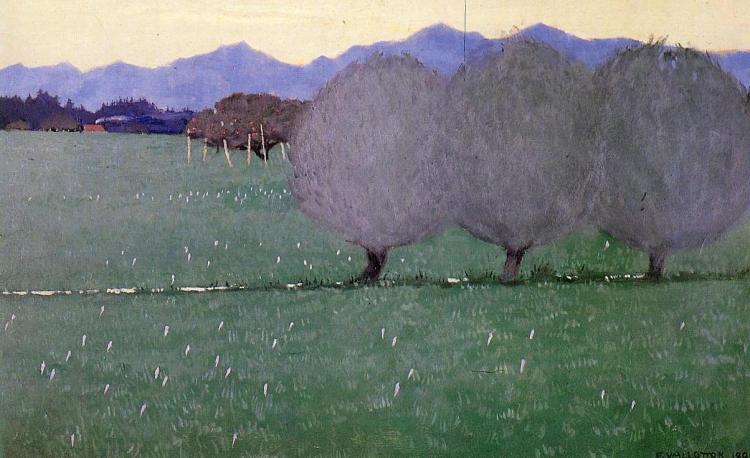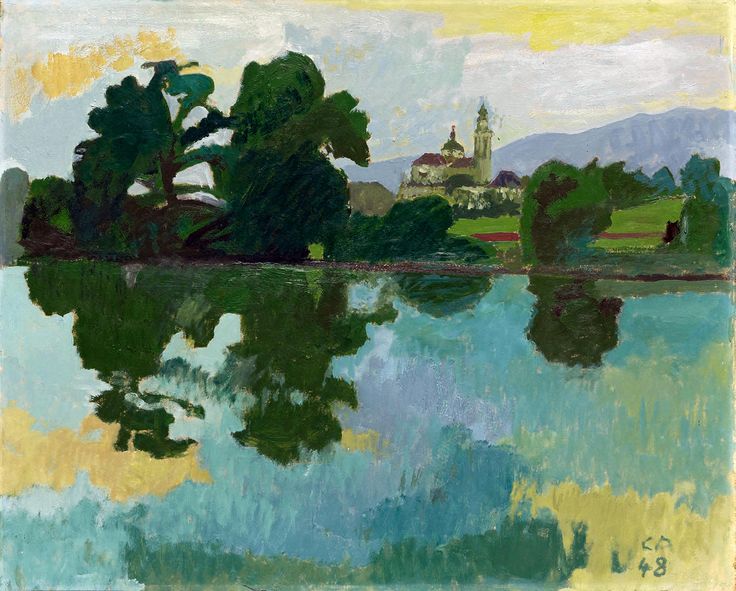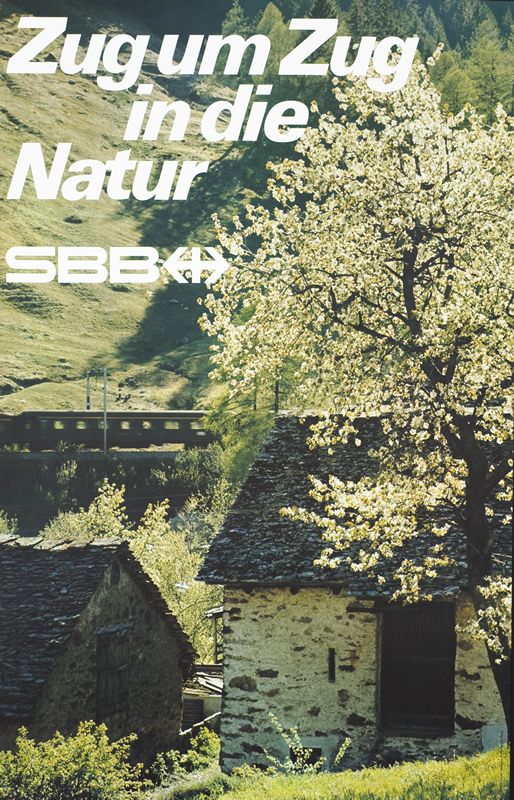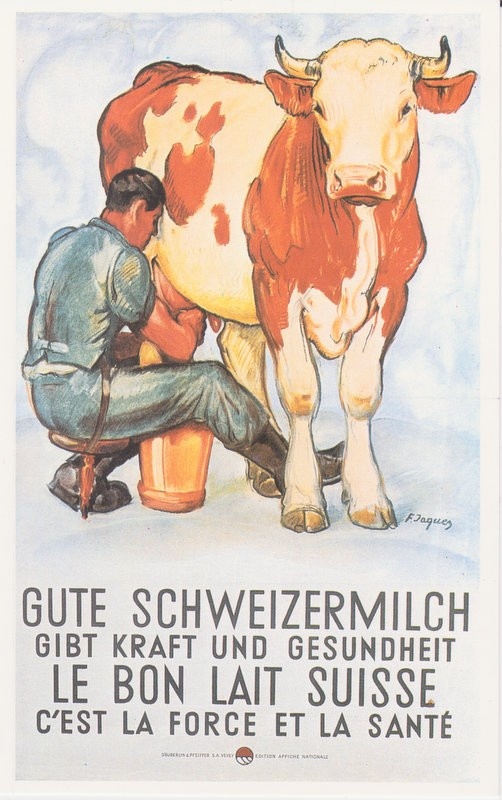
Although both of my parents are Swiss—they immigrated to Canada in the late 1960s, where I was born a few years later—I always sensed, even as a child, that their families didn’t have much in common. You could tell how different they were by the way they cut bread. At my mother’s parents’ house in the suburb of a small city on the beautiful Aare river, bread was cut the same way it was at ours: on a cutting board situated firmly, and safely, on the table. At my father’s parents’ house in a village about 15 kilometers upstream, bread was cut, bewilderingly, and to my childhood self frighteningly, in the crook of the arm. You’d nestle the loaf against your side and hack a chunk off with a knife that always threatened to cut your fingers or lodge in your ribs.
I say “you” as if it was something I did all the time, but in fact I never trusted myself enough to learn how to do it—nor did my mother, who looked on at this state of affairs with a mixture of bemusement and disdain. Although we didn’t visit Switzerland often—only every four or five years—those extended summertime visits provided many of my strongest memories. Although I couldn’t have put it that way at the time, my father’s family was at once richer and less sophisticated than my mother’s. My mother’s father was a machinist, a trade unionist, a Marxist, a small dapper man who loved Charlie Chaplin but whose sternness frightened me. My father’s father was an architect (really more a combination of a builder and a technical draughtsman, I think), a lover of wine, a sportsman, an inveterate teaser, a big lion of a man whose flashing gold fillings fascinated me. My father’s family had a car and a television; my mother’s family had neither. My father’s family skied or crammed in the car to vacation on the Dalmation coast; my mother’s rented rooms in boarding houses in the Alps where they hiked every day.
But no matter what luxury goods they had or where they vacationed, my father’s parents and relatives were peasants. When years later I discovered John Berger’s Into Their Labours trilogy, his brilliant tales of peasant life in the French alps in the middle part of the 20th century, I recognized its world immediately. The village where my father’s parents lived—a place that, when I lived for a time in Switzerland in my early 20s, I thought of as the most soul-crushingly boring place I had ever lived, even worse than the Canadian prairie I was trying to escape, the same prairie I now think of as the most beautiful place in the world—was set in the middle of farmland. In fact, there was a small farm right next to their house, with fly-spattered cows and a farmhouse with attached stables that stood right on the main road through town, puzzling to my Canadian sensibility, where farms where huge and far from anywhere people might live. And my grandfather’s nephew was a farmer in an even smaller town about 20 minutes away—we’d visit sometimes and I’d peer cautiously at the cows in their stalls, wrinkling my nose at the smell. The nephew lived with his mother, my great-Aunt, who seemed wizened and ancient but always served us pie, the same kind of delicious pies my grandmother would make, in a kitchen that, although better apportioned, was also filled with flies.

I thought of those flies, and these relatives, all now lost, and that inchoate sense I had that my father’s family was close to the land in a way that alarmed me, when I read Roland Buti’s Year of the Drought, awarded the 2014 Swiss Literature Prize, and now available in a lovely translation by Charlotte Mandell.
The year of the title is 1976, when a terrible heat wave brought drought to Switzerland. The setting is a farm in canton Vaud, in the French-speaking part of the country. The narrator is Gus, short for Auguste, who is thirteen years old and at loose ends during the summer holidays. He helps his father and the farmhand, Rudi, son of a distant cousin, who has Down’s syndrome. In an effort to improve the family’s financial situation, the father has borrowed heavily to invest in chickens, convinced, not without reason, that the expanding middle classes won’t be able to live without regular meals of roast chicken. But the punishing heat turns their newly installed metal-roofed coop into an oven. The fans are no match for the heat; every morning there are more carcasses to clear away. When his chores are done, Gus visits his grandfather, a spritely character who tries to escape the temperature by sleeping in the stall of his beloved ancient horse. He sketches the countryside around the farm, tames an injured dove, stays out of the way of his older sister, a temperamental and self-absorbed classical musician-in-training, devours comic books and, “in the hope that something astounding might happen… acquire[s] the habit of remaining still for very long periods of time.”
In a way, something astounding does happen. A woman enters the family’s life. Cécile works at the post office, hardly glamorous, but she has a certain quality, something that extends beyond her perfume and colourful dresses and little orange Renault. At first we imagine she’s going to seduce the narrator, introduce him to the ways of the flesh. Or maybe that she’ll distract the father from his single-minded devotion to scratching a living from the land. But in fact it’s Gus’s mother who excites her: What is first flagged by her tendency to absentmindedly brush against his mother’s arm, noted only in passing by the narrator, leads to upheaval in the household: the father moves into the guest-room, where he stays even when the mother moves out with her new lover.
The weather gets worse, even the dog faints in the heat. The narrator is angry, unsure, bored, bewildered. He loses his virginity to a local girl he’s not very nice to. Crops wither and burn up. The army is called in to irrigate the fields, but it’s too late. The horse dies, its corpse stinking in the heat, a death the boy’s father responds to by “remain[ing] stoic in the midst of the flies, which flew in every more frenzied acrobatic formations though the vapours that, for them, must have been what we humans call an earthly paradise.”
This is one of the book’s few reflective moments, though the upshot of the reflection is unclear. An ironic commentary about a world that will never, no matter how hard the father works to convince himself and his family otherwise, be an earthly paradise? Or a rueful recognition that one creature’s shit is another’s delight?
Eventually a violent storm breaks the heat; afterwards, at the end of the summer, nothing’s the same, although the book’s tone matches the family at its center. Just as they stoically get on with things—even though the distance that was always along them is now revealed for what it is and will never be repaired—so too does the novel take a measured approach to the change it depicts.
From what I’ve read online, many readers like the father, finding him a sympathetic character, maybe not noble but certainly admirable in his persistence and put-upon-ness. I was less convinced. He’s not entirely clichéd: not completely brutal and coarse. He values Rudi as a person rather than as cheap, untiring labour. He doesn’t womanize or drink (much). He even has a philosophy, a theory of the power of the land. But he is violent; he lashes out against his wife and eventually everyone who comes near him. Maybe it’s just my unease with the whole way of life represented for me by my father’s family, but I refused to sympathize with him. In that regard, I might be like Gus—his ambivalence towards his father is most clearly present in the book’s last lines, when as an adult remembering the father’s response to the death of the horse he reflects on his father’s stoicism:
I thought then that he would have liked at that very moment to be absorbed by the earth, swallowed gently into the depths, in order, at last, to merge with the relics of all the men and women who had been nourished by these once fertile lands.
On the face of it, this sounds like an acceptance if not an endorsement of the father’s belief that “all humanity’s progress… had been made possible thanks to the perseverance of the early farmers,” who had cultivated the idea of liberty and eventually, in Switzerland no less, “had one day risen up from their pastures… to slough off tyranny and plant the seeds of a democracy that would change the fact of the world.” But the description of “once fertile lands,” which seems much more grandiosely intended than a simple reference to the drought, intimates loss or failure, and might be read as the son’s distancing himself from the father’s worldview.
Actually, I think there is something valuable about the little farms that the father and my grandfather’s nephew tilled, beginning with their very scale and inefficiency. (Insofar as this way of life still exists—and even in the 80s it was clearly on the way out, many of the farming villages turning into bedroom communities for the cities of Bern, Basel, and Zurich—it’s only because of heavy government subsidies.) I can get on board with that resistance to capitalism, but in the end I didn’t find Buti’s novel that interested in—and thus not very compelling about—the material and economic aspects of its milieu. (Berger is miles more sophisticated in that regard, plus he’s even more lyrical.)
Although I was glad the mother was given the chance to escape to a new life—it seemed a big deal that the novel was even able to imagine that—I wanted more of her, even though the end of the book makes clear that it’s about the ones who stay behind not the ones who fly the coop. Too bad, because even in her brief appearances her very restraint makes her a vivid character. The narrator’s wish for more affection from her shows us how strongly she has retreated into herself:
I would have liked her to set down her towel and dry her hands, to come over and kiss me, stroke my hair, tickle my neck with the tips of her fingers. When I left for school, she would give me a dry peck on the cheek, a kiss from the very tip of her lips that echoed in the cool morning. Lingering on my skin for less than a millisecond, her mouth imparted no sense of its moistness. She never gave me a tender pat of encouragement to send me on my way. Handling me my lunch-box, she would wish me a good day. As I walked past our big elm tree in the garden, I knew without needing to check that she was not watching me go, but had already returned to her chores.
I notice I’ve scarcely mentioned my grandmothers in my memories of my relatives, not because they weren’t interesting—they were a hundred times more important in my life than my grandfathers—but because Buti’s novel is mostly about men. Maybe that’s one reason it didn’t move me to much more than appreciation.

The book’s original title is Le milieu de l’horizon, which I think (though my French isn’t good enough to say for sure, so please correct me if I’m wrong) can mean either the middle of the horizon or the world of the horizon. If horizons suggest departures or possibility or even promised lands, then either of these titles could refer to the desire (however impossible) for a different life. In German, the book is called Das Flirren am Horizont, which means The Shimmer on the Horizon, which refers more directly to the heat of the summer. The English title is at once more matter of fact and more hopeless. No horizon, only drought.
Whatever its title, Buti’s novel pleasingly combines reticence with lyricism. We get striking descriptions, as in this scene describing the army’s failed attempt to revive the scorched crops by spraying them with water pumped in from a nearby lake:
The field was in ruins. The water had done nothing but slide in little streams over the black earth, as hard as a reptile’s skin. It had accumulated in dirty, dust-covered puddles in the hollows, from where it would evaporate without ever penetrating the earth to work its magic. The long stems of the plants were still crackling. It sounded as if a fire were slowly consuming them from inside. The desiccated leaves and the beard around the corn husks looked like oakum on the verge of spontaneously combusting. The ground was strewn with little white fish, some of them still flapping their tales. They had been sucked from their habitat, to be tossed about in an immense, dark aquarium, before ending their lives with their bellies in the air, floundering in despair on the bare earth.
Even more than the flailing fish, the water that perversely brings fire highlights the hopelessness of the situation. (It’s not really apocalyptic, though: I think, however, that readers can’t help but think of the scenario as a sign of inescapable climate change rather than the once-in-a-lifetime event that the characters experience.) Even here, though, the imagery isn’t entirely fresh. I remember reading another novel (though I can’t remember which one—it would have been twenty years ago: maybe something Canadian?) in which fish get dropped inland after a water-bomber scoops them out of a lake in the course of fighting a forest fire.
Not everything needs to be new, of course, and Buti plays his low-key hand nicely. He’s given us an enjoyable read, though not one, I suspect, that will stay with me. What I will remember, however, is Charlotte Mandell’s translation. Without having read the original it’s hard to say, of course, but she seems to me to bring a delicate, sensitive touch to her work. I especially appreciated that she left the book’s bits of Swiss German in the original (they’re translated in footnotes)—it might not be evident to non-Swiss readers, but Buti seems to be making an argument for something like Swissness, that a quality of attachment persists across the so called Röstigraben, the divide between French and German Switzerland, as demarcated by whether people eat Rösti, a fried grated potato dish. The narrator’s family has lived across the Sarine for three generations yet they still eat potatoes for breakfast instead of buttered bread and jam.
In the end what I liked best in this novel was entirely idiosyncratic to me, the way it brushed against my own family history. Little moments resonated with me, like the Rösti (a staple of my childhood), or the passing reference to Aarberg, the town where Rudi was born, home, I suddenly remembered when I came across this moment in the text, to a sugar factory (a fact that struck me forcibly as a child—a factory where they made sugar!) and the site of a family reunion where, as a ten-year-old, only six years after the events of Buti’s novel, I played on a team with my father and grandfather. The older I get, the more nourishing such memories become.

Grant at 1st Reading alerted me to this book. Melissa at Bookbinder’s Daughter has reviewed it too. They both liked it more than I did and you should read them for proper reviews rather than the memoir manqué.